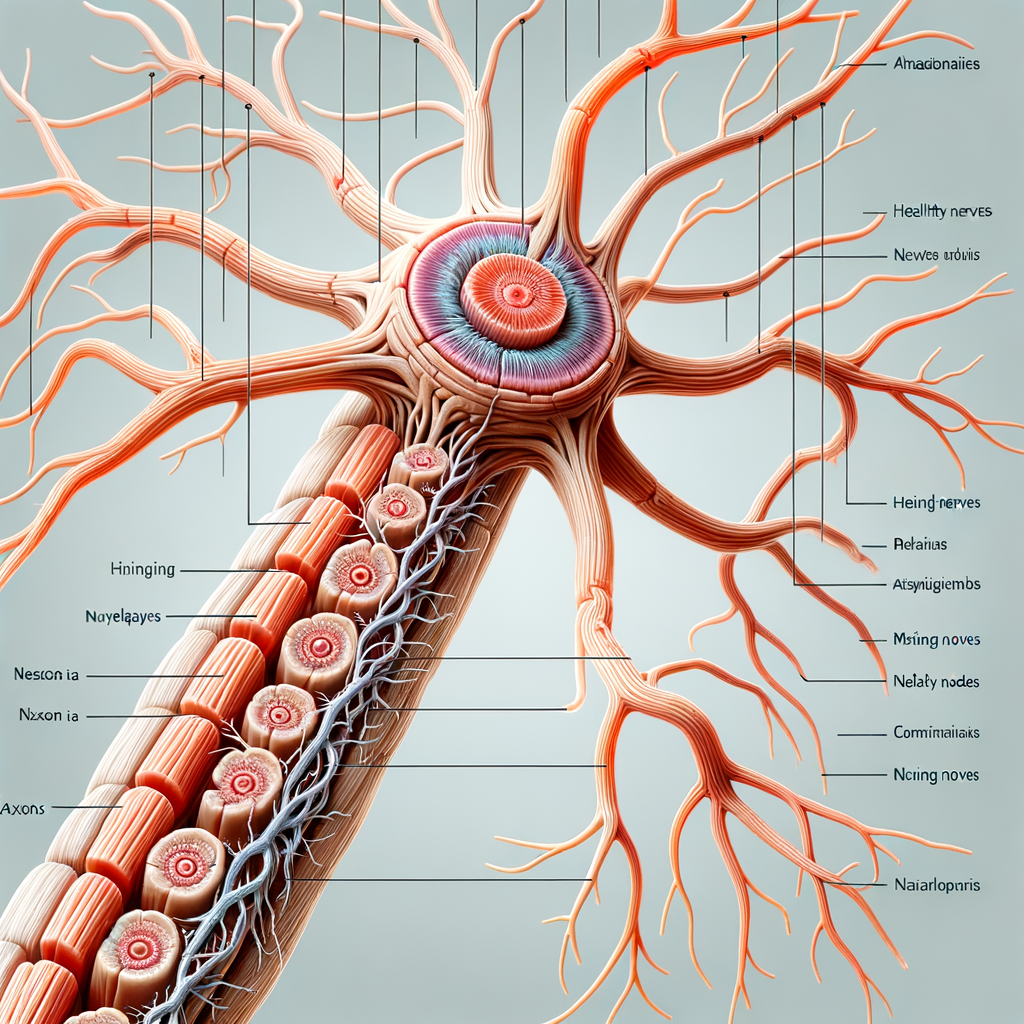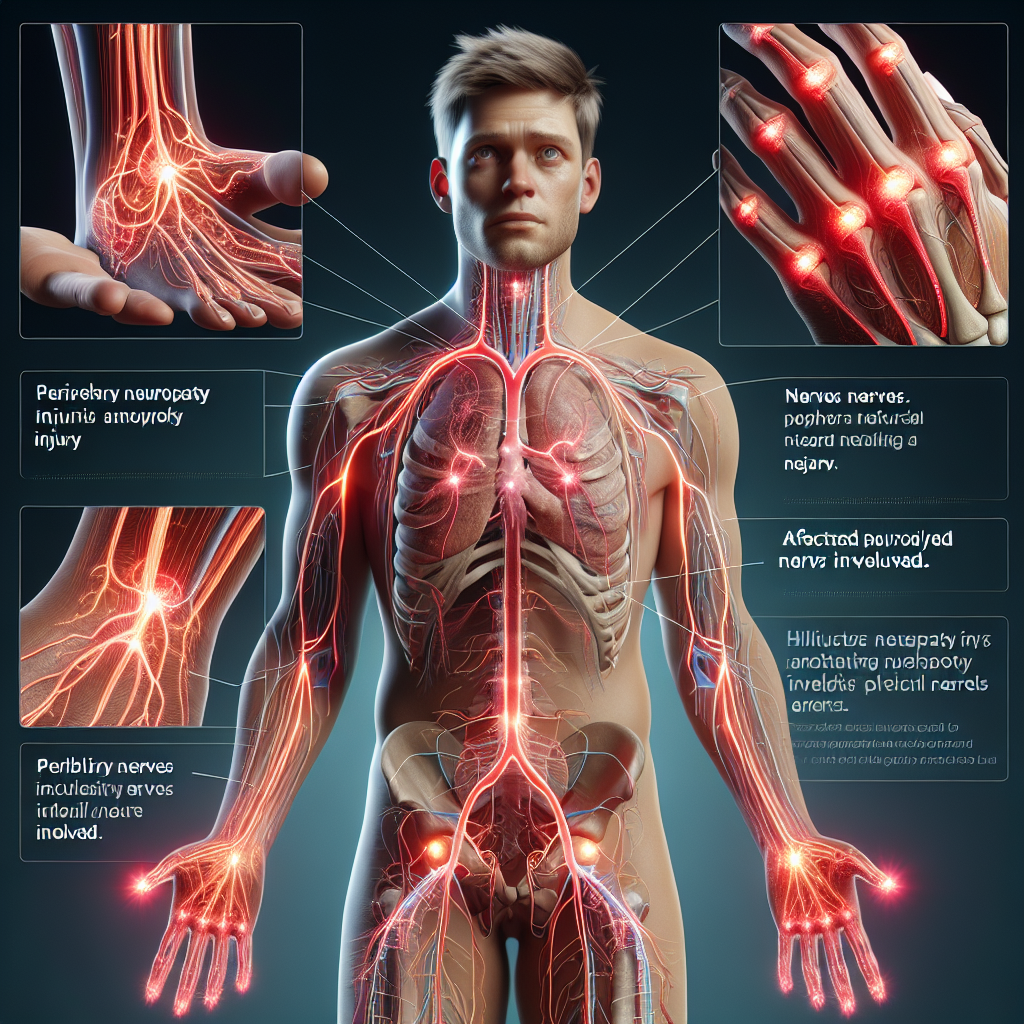Understanding Peripheral Neuropathy Injury

Peripheral neuropathy injury is a condition that results from damage to the peripheral nerves, which are responsible for transmitting signals between the central nervous system and the rest of the body. This condition can cause a variety of symptoms, including pain, numbness, and weakness, primarily in the hands and feet. In this article, we delve into the causes, symptoms, diagnosis, and treatment options for peripheral neuropathy injury.
Causes of Peripheral Neuropathy Injury
Peripheral neuropathy can be caused by a variety of factors. Some of the most common include:
- Diabetes: This is the most common cause, with up to 50% of people with diabetes eventually developing some form of neuropathy.
- Infections: Certain viral and bacterial infections can cause peripheral neuropathy.
- Autoimmune diseases: Conditions such as rheumatoid arthritis and lupus can lead to peripheral neuropathy.
- Physical trauma: Accidents, falls, and fractures can cause nerve damage leading to peripheral neuropathy.
Symptoms of Peripheral Neuropathy Injury
The symptoms of peripheral neuropathy can vary greatly depending on the type of nerves affected. They may include:
- Sensory symptoms: These include numbness, tingling, and pain.
- Motor symptoms: These include muscle weakness and loss of coordination.
- Autonomic symptoms: These include changes in blood pressure, heart rate, and digestion.
Diagnosis and Treatment of Peripheral Neuropathy Injury
Diagnosis of peripheral neuropathy typically involves a physical examination, a review of medical history, and certain tests such as nerve conduction studies and electromyography. Treatment options depend on the underlying cause of the neuropathy and may include medications, physical therapy, and in some cases, surgery.
Case Study: Peripheral Neuropathy in Diabetic Patients
A study published in the Journal of Diabetes and its Complications found that approximately 50% of patients with type 2 diabetes develop peripheral neuropathy. The study also found that strict control of blood sugar levels can significantly reduce the risk of developing this condition.
Conclusion
Peripheral neuropathy injury is a complex condition with a wide range of causes and symptoms. Early diagnosis and treatment are crucial to managing the condition and preventing further nerve damage. If you experience symptoms of peripheral neuropathy, it is important to seek medical attention promptly.
Meta Keywords:
Peripheral Neuropathy Injury, Causes of Peripheral Neuropathy, Symptoms of Peripheral Neuropathy, Treatment of Peripheral Neuropathy, Diabetes and Peripheral Neuropathy
Note: The request for a cartoonish image and setting it as a featured image for the article cannot be fulfilled by the AI. This task requires a graphic designer or a relevant software.







